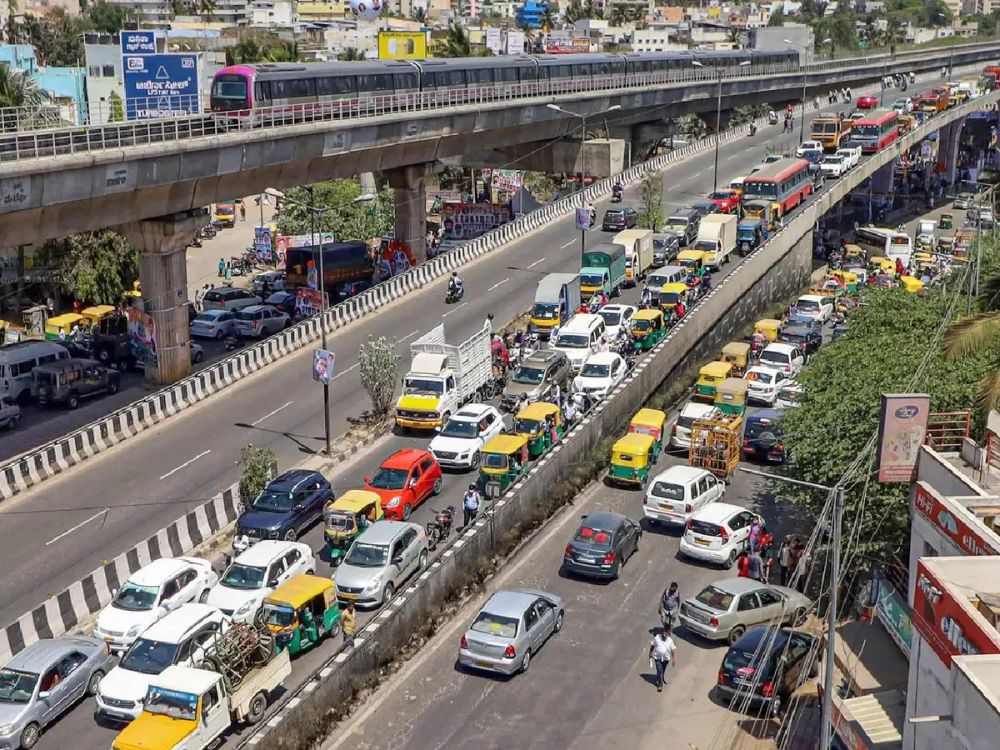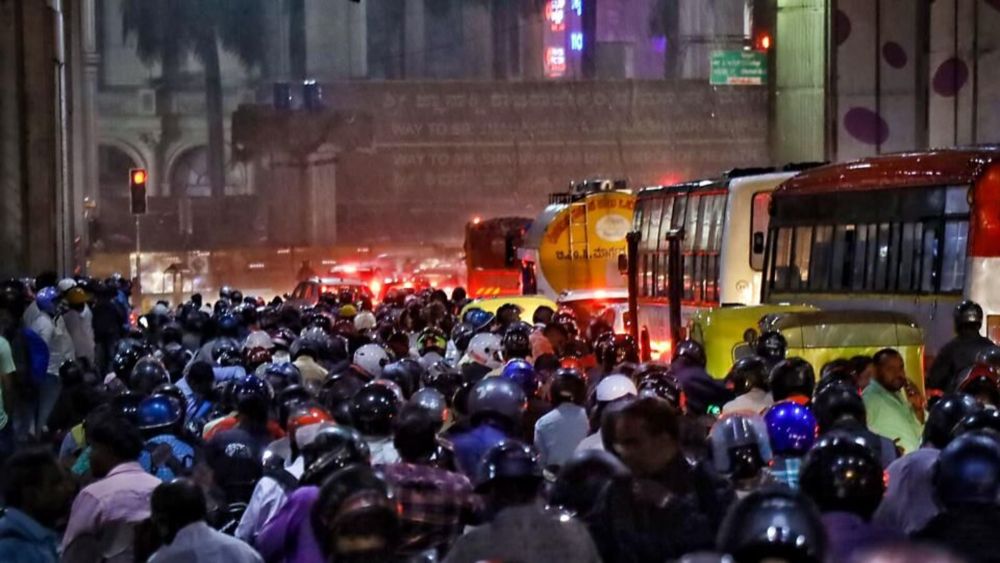In the latest TomTom Traffic Index, Bengaluru, the technological and startup hub of India, has retained its position as the country’s most congested city in 2023. This Dutch location technology specialist’s report reveals significant insights into Bengaluru’s traffic situation, ranking it sixth globally in terms of congestion.

Global Ranking and Trends
Bengaluru, which held the second position in 2022, slipped to sixth place in the global ranking of the most congested cities. The average time to cover a distance of 10 km in Bengaluru improved slightly from 29 minutes in 2022 to 28 minutes and 10 seconds in the past year. However, the average speed during rush hours was reported to be 18 kmph, resulting in Bengalureans losing 132 hours in traffic congestion throughout the year.
Global Comparison
London tops the global list of congested cities in 2023, with an average speed of 14 kmph during rush hours. Other cities ahead of Bengaluru include Dublin, Toronto, Milan, and Lima. The report sheds light on the congestion levels in Bengaluru and its impact on the daily lives of its residents.

City-wise Congestion in India
According to the TomTom Traffic Index, Pune ranks seventh globally in congestion with an average speed of 19 kmph, followed by Delhi at the 44th position (24 kmph) and Mumbai at the 54th position (23 kmph). The report provides a comprehensive view of traffic challenges in various Indian cities.
Key Data and Worst Travel Days
The worst day for travel in Bengaluru in 2023 was identified as September 27, with an average travel time of 32 minutes and 50 seconds to cover 10 kilometres. Fridays, from 6 pm to 7 pm, proved to be particularly challenging, with an average travel time of 36 minutes and 20 seconds for the same distance.
Potential Savings and Commuting Habits
The report highlights potential savings for Bengaluru residents by adjusting their travel habits. Significant reductions in travel time and emissions can be achieved through working from home. Adjusting travel habits for a 10 km commute in Bengaluru could result in savings of 51 hours of travel time and 194 kg of emissions per year for one day of working from home (Fridays).

Insights and Recommendations
The TomTom Traffic Index covers 387 cities across 55 countries and six continents, assessing cities based on average travel time, fuel costs, and CO2 emissions. Ralf-Peter Schäfer, vice president of traffic at TomTom, emphasises the urgent need to address traffic congestion and its economic, ecological, and health consequences. He suggests that planning the future of urban areas is crucial for ongoing traffic management, and the analysis of historical traffic data can help growing cities plan more efficient road systems.

As Bengaluru grapples with its status as India’s most congested city, the TomTom Traffic Index provides valuable insights that can guide urban planning and traffic management measures. The report underscores the importance of leveraging data for effective decision-making to alleviate traffic congestion in major urban areas
